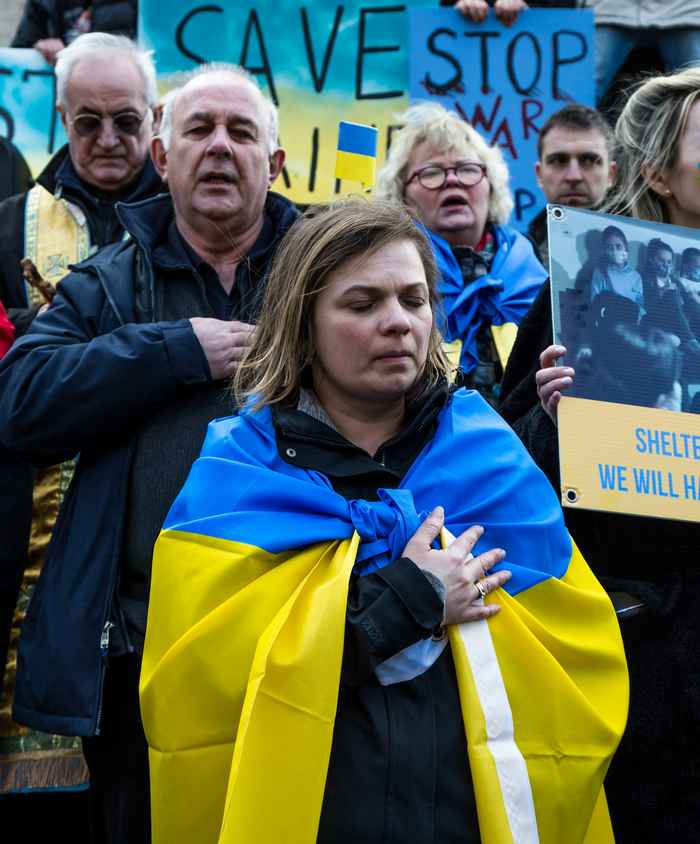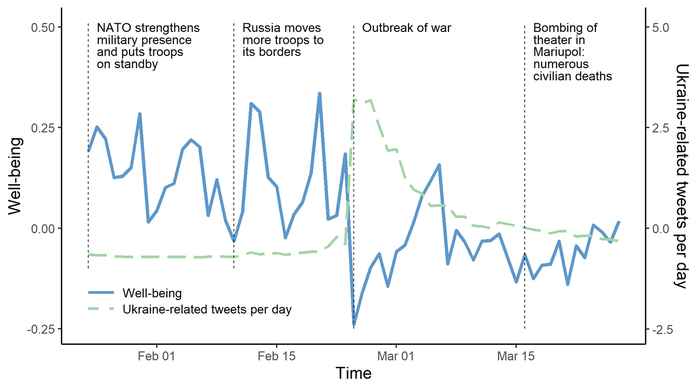Outbreak of war in Ukraine caused mental health to deteriorate across Europe
20 February 2024

The Russian invasion of Ukraine on 24 February 2022 has had devastating effects on the Ukrainian population, the global economy and political order. But little is known about the war's global psychological impact and its effect on the mental well-being of people outside Ukraine. A long-running international study on mental health gave the research team the opportunity to uncover the psychological effects of the war in the weeks surrounding its outbreak (between the end of 2021 and the summer of 2022).
Mental stress greater than after Covid lockdown
The research, based on around 45,000 individual surveys among 1,300 people in 17 European countries, shows a sharp collective decline in well-being immediately after the invasion. And until the end of the period studied – the summer of 2022 – people in Europe had significantly less of a sense of well-being than the rest of the world. On days when the war had a particularly strong presence on social media, the researchers observed even more of a deterioration in the average levels of mental health (see figure below).

The researchers found that collective mental stress as a result of the war in Ukraine was greater than the level measured after the nuclear catastrophe in Fukushima in 2011 or after the Covid lockdown in 2020.
Differences in recovery
The researchers also examined how well people recovered from the initial shock of the invasion. Waking up to smartphone notifications that Russia had invaded Ukraine apparently shocked everyone in similar ways. In the weeks that followed, the situation had a less uniform effect. This appeared to be strongly related to individual personality factors and independent of age, gender, social status and political ideology. Those with more vulnerable and less stable personalities had not yet recovered a month after the start of the war.
The researchers underline how exceptional it was to be able to investigate such an impactful event in such a precise time period with such a broad geographical reach. According to the researchers, the study thus adds an extra dimension to the debate about the humanitarian, political and economic consequences of the war. It also shows less obvious forms of impact, such as the affect the daily flow of news reports and images has on the psyche.